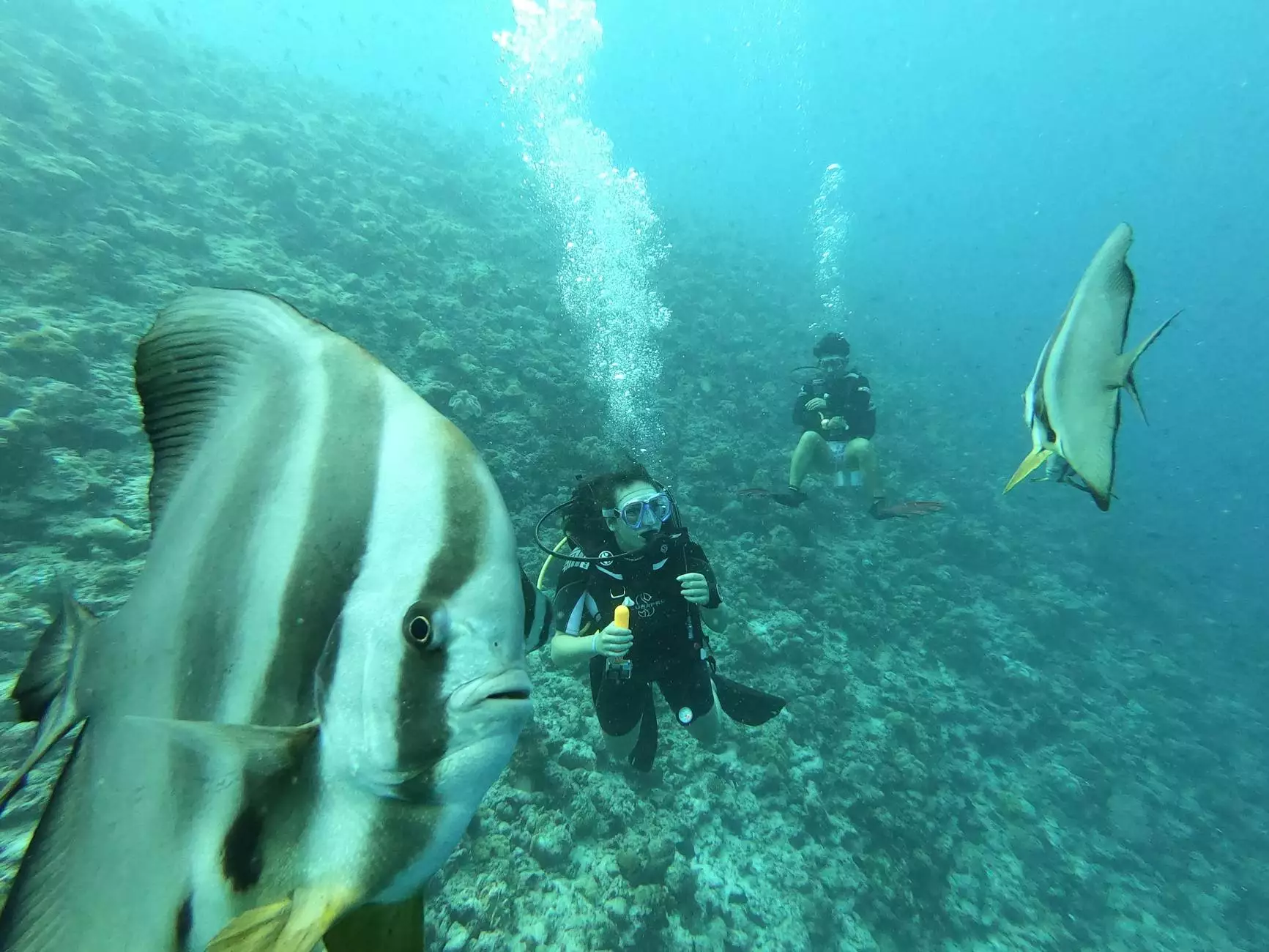Buy Scuba Equipment: Your Ultimate Guide

Scuba diving is an exhilarating adventure that allows you to explore the mysterious and beautiful underwater world. If you're considering taking the plunge into this captivating hobby, you're likely wondering how to buy scuba equipment that is both affordable and high-quality. This guide will provide you with the essential information needed to make informed equipment purchases and facilitate a rewarding diving experience.
Understanding Scuba Gear Basics
Before you dive into the details of specific equipment, it’s crucial to understand the essential components of scuba gear. When you buy scuba equipment, you typically need to consider the following:
- Scuba Tank: The tank holds compressed air, allowing you to breathe underwater.
- Regulator: This device controls the flow of air from the tank to your mouth.
- BCD (Buoyancy Control Device): The BCD helps you maintain neutral buoyancy while diving.
- Wetsuit/Drysuit: These suits provide thermal protection and comfort in cold water.
- Fins: Fins enhance your mobility and efficiency underwater.
- Mask: A reliable mask provides clear vision and prevents water from entering.
- Weight System: Weights help you achieve proper buoyancy when diving.
Factors to Consider When Buying Scuba Equipment
When deciding which gear to purchase, consider these important factors:
1. Quality and Safety
Your safety is paramount when it comes to buying scuba equipment. Always opt for reputable brands that meet international safety standards. Look for equipment that has been tested and certified by organizations such as the American National Standards Institute (ANSI) or the European Committee for Standardization (CEN).
2. Comfort and Fit
Comfort is essential for an enjoyable dive. Ensure that any wetsuit or drysuit you choose fits snugly without being restrictive. Masks should create a good seal around your face, and fins should feel secure but not too tight.
3. Price and Budget
Scuba equipment prices can vary significantly. Set a budget before you start shopping, and keep an eye out for sales or bundled deals. However, remember that cheaper options are not always the best choice—prioritize quality over cost whenever possible.
Where to Buy Scuba Equipment
There are several excellent places to buy scuba equipment. Here are some top options:
1. Local Dive Shops
Your local dive shop is an invaluable resource. The staff can provide expert advice, allow you to try on equipment, and often offer packages for new divers. Plus, buying locally supports small businesses and fosters your diving community.
2. Online Retailers
Websites such as infinitydive.com offer extensive selections of scuba gear, often at competitive prices. When shopping online, always verify the return policies and warranty information to ensure a safe purchase.
3. Secondhand Options
Purchasing secondhand gear can save you money, but it’s essential to check the condition of the equipment and ensure it meets safety standards. Look for reputable sellers or platforms specializing in diving gear.
The Essential Gear You Need
Let's dive deeper into each equipment category:
Scuba Tanks
Scuba tanks are typically made of aluminum or steel. When you buy scuba equipment, consider the tank's capacity and weight, and ensure it meets your diving needs. Common tank sizes include:
- AL80 (80 cubic feet)
- AL63 (63 cubic feet)
- AL100 (100 cubic feet)
Regulators
A regulator is a crucial piece of gear that ensures a safe and controlled air supply while diving. Look for a model with high performance, easy maintenance, and good reviews. Consider factors like ease of breathing, durability, and the warranty offered by the manufacturer.
BCD (Buoyancy Control Device)
Your BCD needs to be comfortable, well-fitted, and capable of holding the required amount of weight for buoyancy control. Consider whether you prefer a jacket-style or a back-inflation BCD, depending on your diving style and comfort level.
Wetsuits and Drysuits
Choosing between a wetsuit and a drysuit can depend on water temperature and personal preference. Wetsuits are great for warmer waters, while drysuits are ideal for colder temperatures. Make sure to buy a suit that fits tightly to minimize water exchange and maximize thermal protection.
Fins, Masks, and Snorkels
Having the right fins and mask can significantly enhance your diving experience. Fins come in many sizes and styles, so it's essential to try them on to find what feels best.
- Open-heel fins: These are adjustable and can be used with dive boots.
- Full-foot fins: These are typically lighter and ideal for warm water diving.
Each diver’s face shape is different, so select a mask that fits your face well and creates a good seal. Snorkels are also necessary for surface swimming. Ensure they are comfortable and easy to clear.
Weight Systems
Achieving proper buoyancy is essential for every dive. You can use weight belts or integrated weight systems built into BCDs. Always distribute weight evenly for better control.
Maintenance and Care of Your Equipment
Once you've invested in quality scuba gear, it's crucial to take care of it. Proper maintenance will prolong the lifespan of your equipment and ensure your safety.
1. Rinse After Every Dive
Saltwater and chlorine can corrode gear. Always rinse your equipment in fresh water after diving. Pay particular attention to the regulator and BCD.
2. Inspect Regularly
Examine your gear thoroughly before every dive. Check for signs of wear, leaks, or any damage. If you notice any issues, seek professional assistance to ensure your gear is in optimal working condition.
3. Service Your Equipment
Have regulators and tanks serviced annually by a certified professional. Regular maintenance can prevent problems and ensure the longevity of your equipment.
Maximizing Your Diving Experience
After investing in scuba equipment, the next step is to enhance your diving experience:
1. Join Diving Courses and Tours
Consider joining a diving course or guided tours to improve your skills and knowledge. Infinity Dive offers a variety of tours that introduce divers to amazing underwater locations while also providing expert instruction.
2. Connect with the Diving Community
Engaging with other divers fosters knowledge sharing and camaraderie. Participate in forums, social media groups, or local diving clubs to meet fellow enthusiasts and exchange valuable information.
3. Plan Your Dives Properly
Always plan your dives according to your experience level and environmental conditions. Research dive sites, check weather forecasts, and ensure that you're fully prepared before heading out.
Conclusion
Purchasing quality scuba equipment is foundational for enjoying a safe and exciting diving experience. By understanding the basics of diving gear, considering essential factors before buying, and maintaining your equipment, you can embark on countless underwater adventures.
Make sure to explore options through reputable sources such as Infinity Dive for tours, dive bars, and boat tours that will elevate your experience as a diver. Whether you are a novice or an experienced diver, investing in high-quality gear and proper preparation ensures you’ll be well-equipped to explore the depths of our oceans.
Happy diving!



